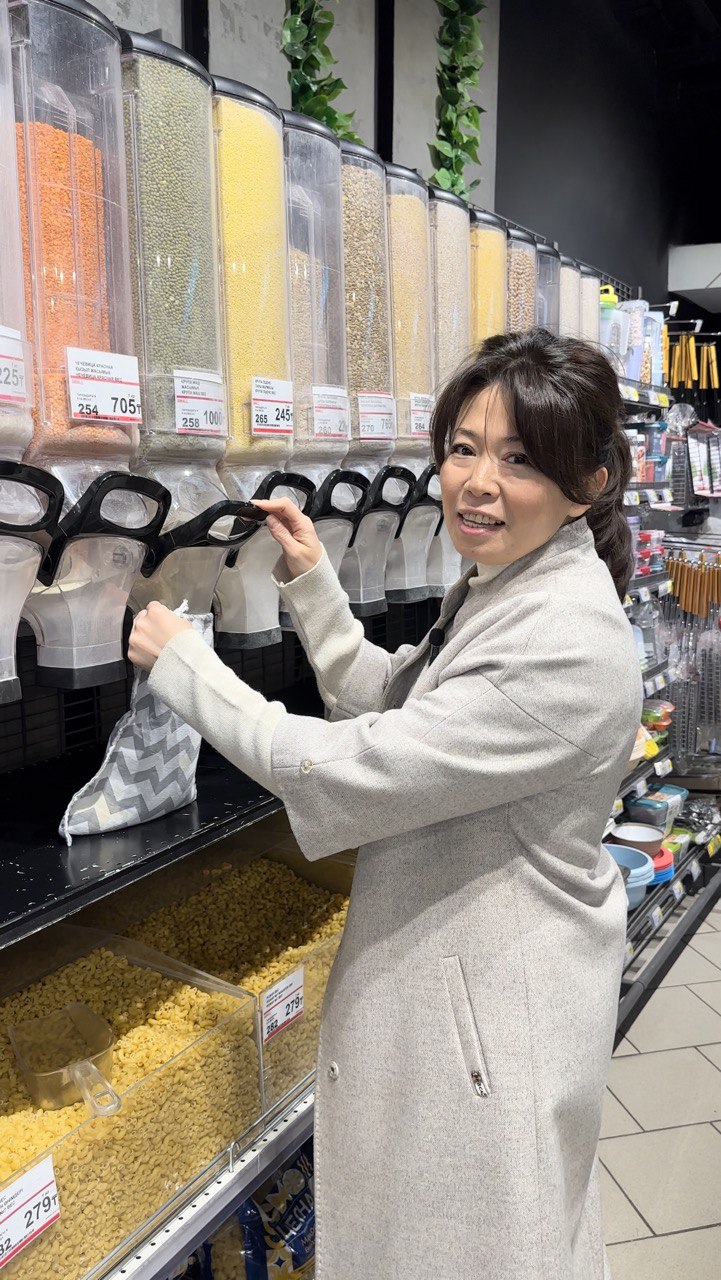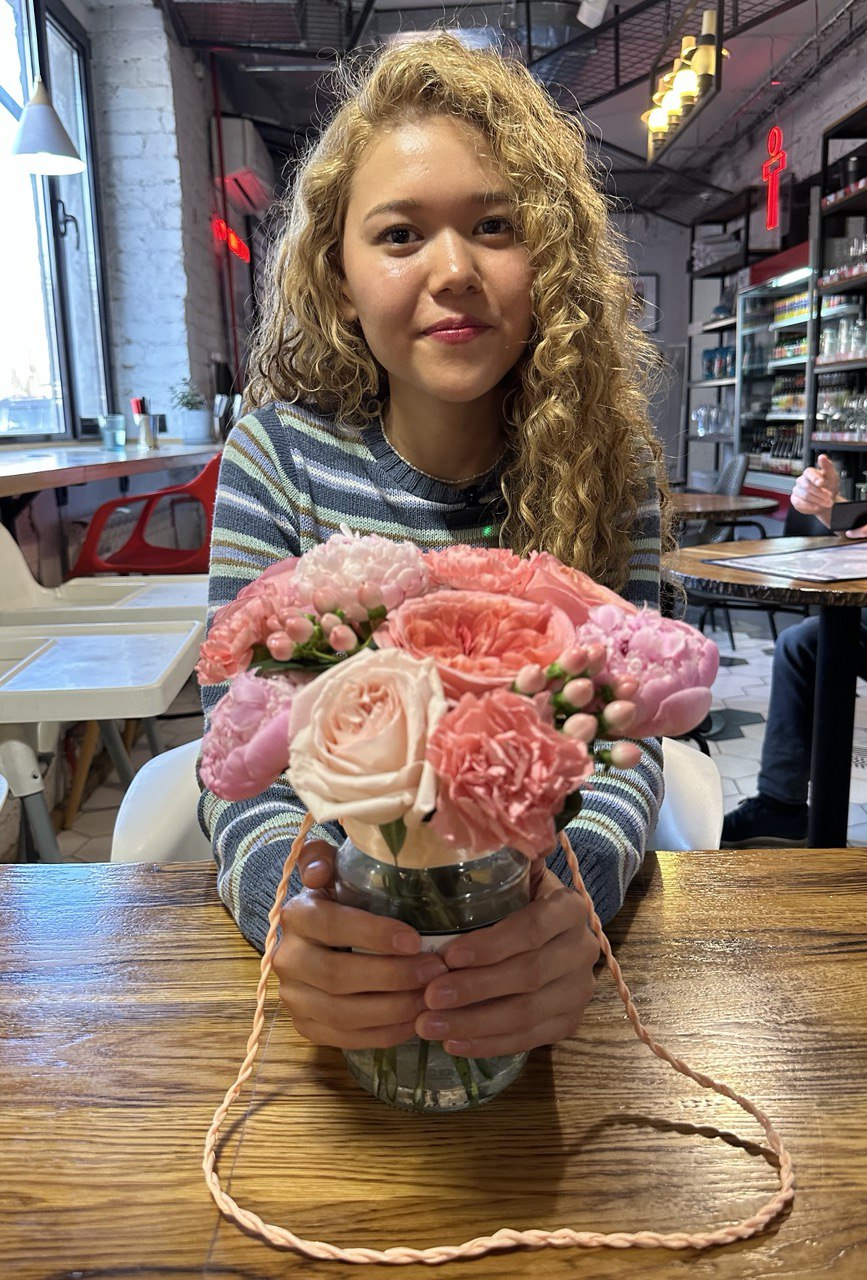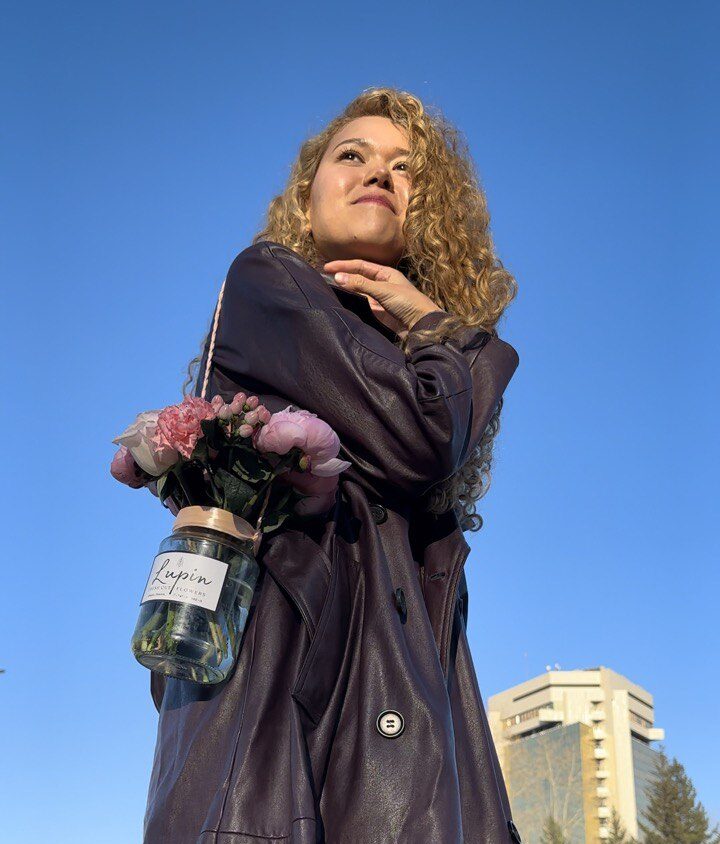ASTANA — Environmental issues are becoming a driving force for new businesses in Kazakhstan, particularly among women concerned about the ecological impact of non-biodegradable packaging.

Maryam Kassymova uses her eco-friendly reusable bags for shopping, as she promotes sustainable living and waste reduction in Kazakhstan. Photo credit: Angela Garipova.
Maryam Kassymova, a successful eco-trainer and an ambassador for the Ministry of Ecology offering conscious living training for individuals and businesses seeking sustainable practices, started sorting waste with her family five years ago.
She grew interested in the potential for raising awareness about environmental issues as she researched the subject. One of the most serious issues, according to Kassymova, is the usage of non-biodegradable packaging when shopping for food, which results in an average of 350 kilograms of waste per person in Kazakhstan each year.
Kassymova sees the education of people on reducing waste by consuming more mindfully as her mission. She notes that such a small act as using one’s bottle protects health and saves money.
“Using eco-friendly shopper bags and bringing your reusable water bottle is a simple yet impactful way to reduce waste. Sadly, studies have shown that even the bottled water we buy can contain microplastics. Bringing your bottle not only protects your health but also saves money. Next time you visit a cafe, bring your own coffee mug as well,” Kassymova said.
Kassymova added that, at the moment, many businesses support green initiatives and offer discounts to customers who bring their own mugs. She advises considering the eco-approach each time making a consumer’s choice.
“Consider the packaging if you plan to buy flowers for a relative’s or mother’s birthday. Some florists now offer beautiful alternatives such as glass jars or minimal packaging, which is a great way to reduce waste and support eco-friendly businesses,” she said.

Karina Sadykova shows her creatively designed flower vase, which is both portable and practical. Photo credit: Angela Garipova.
Regarding the flower business, Astana now offers an option to buy flowers without packaging. Karina Sadykova, a vegan and zoological activist, had a brilliant idea during the pandemic. Looking for a way to create a profitable company while promoting sustainable values, she started selling flowers in beautiful, easily recyclable glass jars.
“At first, we considered wrapping flowers in paper, but then I realized people often take flowers on long outings, such as going on a date, to a restaurant, and walking in the park. Without water, flowers can quickly wilt and lose their freshness. Therefore, I came up with the idea of putting flowers in jars, which can be easily carried and placed in a restaurant or even a movie theater,” she said.

Photo credit: Angela Garipova.
This original approach allowed her to expand her clientele even from those who were initially against buying flowers because of their packaging and short lifespan. Sadykova advises every entrepreneur to prioritize environmental considerations when starting their business.
“If we want future generations to live in conditions that are at least as comfortable as ours, we must try to preserve nature. So our actions, particularly in business, should be evaluated, first and foremost, from an environmental standpoint. I believe that starting a business with an environmental outlook will always be easier and more fashionable now, given that an increasing number of people are becoming conscious of eco-friendliness,” Sadykova concluded.
